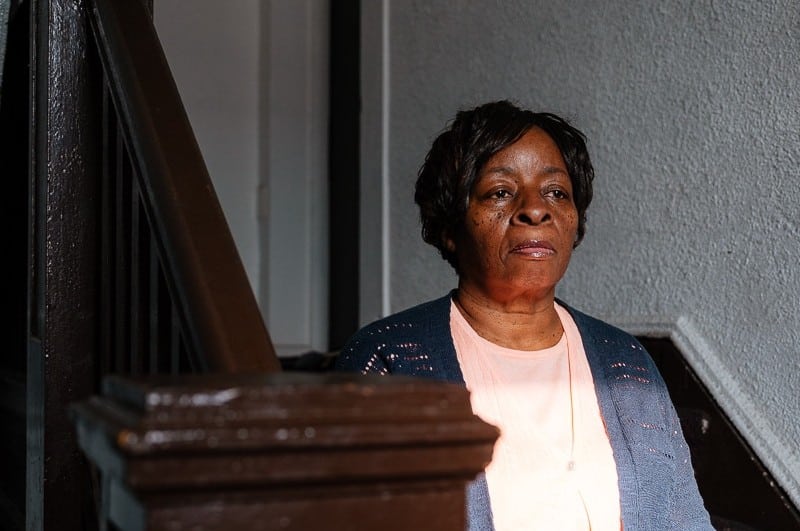Fellowship helps Detroiters find their way home
They say you can't go home again, but three Detroit Revitalization Fellows have used their fellowship to get back to Michigan and do meaningful work in the city.
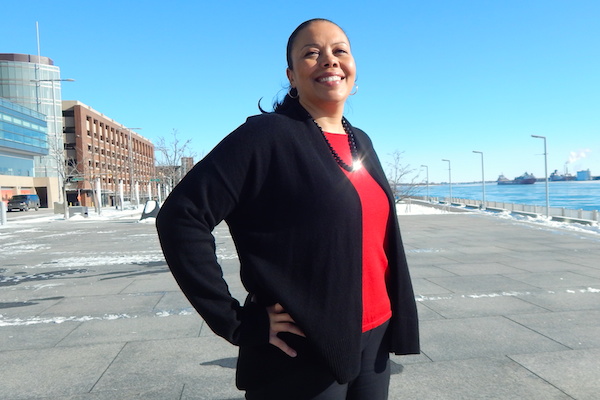
It’s no secret that Detroit and Michigan have had difficulty retaining residents, particularly well-educated ones who have the option and privilege of living anywhere they choose. Despite strong desires to stay in a place they call home, out of state opportunities are often too good for many Michiganders looking to improve their career and personal prospects to pass up.
Jela Ellefson, a native of Slovakia, came to Detroit to attend the University of Detroit Mercy (UDM), then left to live, work, attend graduate school, and start a family in Los Angeles. She stayed there 10 years.
Michael Madej grew up in Ann Arbor and attended college at Western Michigan University before a posting with the Peace Corps took him to East Africa. Afterward, he moved south for graduate school in New Orleans.
Amber Gladney, a Lansing native, attended the University of Michigan before moving on to the University of Chicago’s School of Social Service Administration for a graduate degree. She ended up staying in Chicago for over four years.
But moving away from Michigan isn’t the only thing Ellefson, Madej, and Gladney have in common. All three are Detroit Revitalization Fellows, a Wayne State University leadership program that selects mid-career professionals to help stimulate growth in Detroit’s community and economic development sectors. And all three, thanks in large part to the Fellowship, were able to move back home and take fulltime jobs with partner organizations over the Fellowship’s two year commitment.
Finding opportunity in Detroit
For Ellefson, the road to Detroit came in two phases: she first came here after she excelled in athletics during a student exchange program at a high school in suburban Boston. Her sport of choice? Fencing.
“I got on the radar of the UDM fencing program and came to Detroit in the mid-1990s to do competitive fencing at the college level,” says Ellefson, who is originally from Bratislava, the capital of Slovakia. She studied business administration and finance, graduating in 2001. She worked for Comerica and Bank One in Detroit before moving to LA.
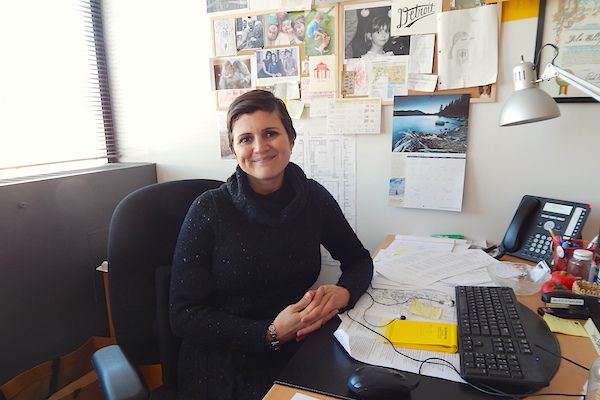
“I worked in banking for five years there, but I lost the passion for finance,” she says. Ellefson went to graduate school at the University of Southern California, where she did a master’s in urban planning. All the while, news of a redeveloping Detroit was getting her attention. “I saw a challenge for myself and an opportunity,” she says. “I got good feedback from friends who still lived here.”
In January 2011, she applied to be part of the first cohort of Detroit Revitalization Fellows and was accepted into the program after an interview in May of that year. By late summer, she was back to begin her two-year commitment with the Eastern Market Corporation (EMC) as the organization’s chief operations officer.
When her fellowship term ended in 2013 Ellefson stayed on with EMC as its grants and special projects coordinator. In that capacity, she writes grants and manages cash flow for the public market, as well as over 150 private businesses in an area bordered by Gratiot, I-75, Mack and St. Aubin.
“I’m on the operations side,” she says, “making sure all the machinery works.”
On a recent cold, sunny day, standing inside the under-construction section of the Dequindre Cut Greenway that passes through the market, Ellefson says the project stirs her passions.
“This is bigger than just creating a bike lane,” she says. “It’s about connecting neighborhoods, about creating economic growth and development. This is exciting for the market and for all of Detroit.”
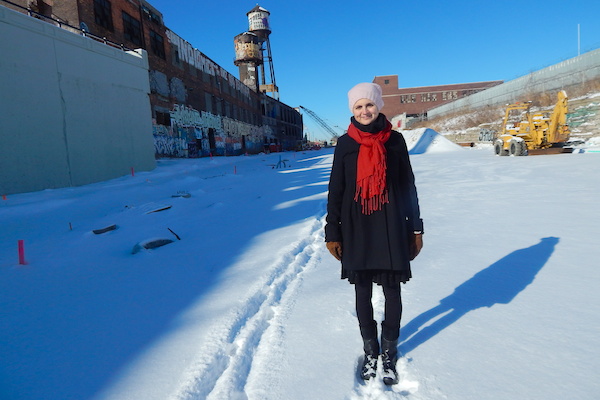
Planting seeds
When Michael Madej was growing up, his relationship to Detroit was mainly through its sports teams, the Tigers and old Tiger Stadium especially. His family, which came to the U.S. from Poland several generations ago, settled on the old west side along the Michigan Avenue corridor. Even after the family moved from Detroit, emotional ties to the city remained. Madej describes it using a sports metaphor.
“It was like following the Lions,” he says, “Big promises were made but went unfulfilled. I’d get excited about the city but things wouldn’t pan out.”

A few years after graduating from Western Michigan University, Madej joined the Peace Corps and was posted to Kenya in a politically unstable area south of Mombasa.
“We were evacuated short of the 27 month commitment because the situation just got too hot,” Madej says. That was in 2008. Later that year he moved to New Orleans, and in 2010 he began graduate school at the University of New Orleans, where he earned a masters in urban and regional planning.
But the pull to return Detroit began to take hold. He applied to be part of the second Detroit fellows cohort, was accepted, and began working for the Greening of Detroit as the nonprofit’s community engagement manager in late summer 2013.
“(Detroit) needs people that plant seeds that can grow,” he says. “I saw an opportunity with the fellowship to do that here, to be able to work with community and be part of something more than a quick fix.”
Madej says that the impact that he and other fellows make can “be substantial and make a difference, but only if they truly “engage with the people who actually live here.”
Since he’s been back Madej says he’s noticed that the passion to meet the challenge of improving the quality of life for a city the size of work Detroit is shared by many in the city, including faculty and students he’s currently working with at the Detroit Institute of Technology College Prep at Cody High School.
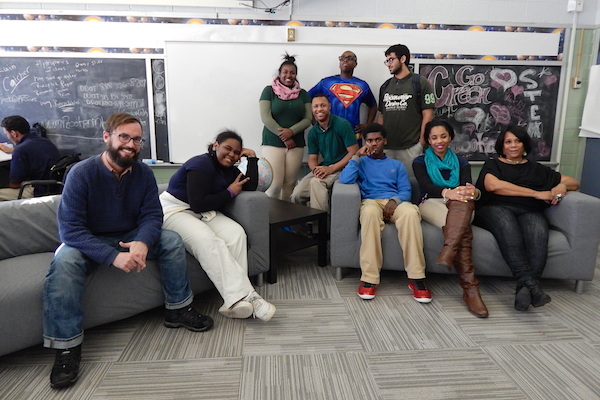
“The work ethic is so strong. There is a genuineness, a heart and soul to the people here,” he says. “Really cool things get done in Detroit. People do it mostly for love and inspiration, not money.”
If there is anything he’d like to see gain more traction it’d be a willingness to celebrate success — or even failure — as a way of unifying community life in the city.
“Coming from New Orleans, where a celebration breaks out for nearly every occasion imaginable, I see the benefits of cutting loose and enjoying life to the fullest,” Madej says. “Not to diminish the serious challenges we face, but places and events that bring people together for fun times is much needed.”
“Detroit feels like home”
Amber Gladney recalls a thought she had while living in Chicago and working as program officer at the Field Foundation of Illinois: “I never felt like it was home.”
Gladney was doing meaningful work as part of a community anti-violence and restoration effort made up of organizations and leaders putting together strategies to reduce crime in Chicago. But sometime in 2011, she says she started “feeling the itch to come home.” The following year, Gladney acted on her instincts, applying to be part of the second Detroit Revitalization Fellows cohort. She received an offer from Invest Detroit and began working as a project coordinator in late summer 2013.
Why Detroit?
“In Chicago, where many people were dismissive of Detroit and believed the stale old narratives, I was starting to feel protective,” she says. “I defended it. I wanted to come here and be part of actions that were positive.”
Since she’s been here, Gladney has found others — in and out of the fellows program – who are meeting the city’s challenges head on.
“I noticed it right away, people in Detroit were expressing support and working together to do things to make the city better,” she says.
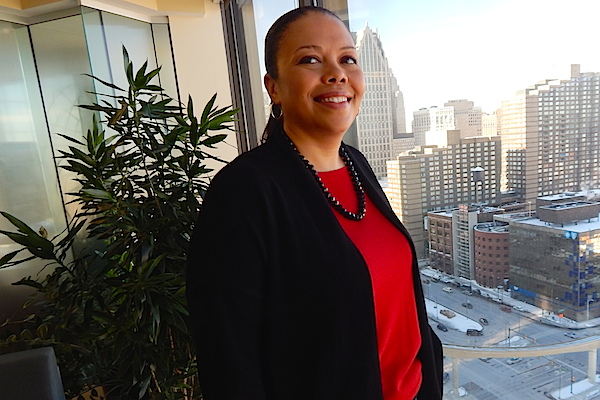
At Invest Detroit, an organization that provides gap financing through a variety of funding tools, her key duties include community outreach, special projects with a focus on the Urban Retail Loan Fund, and sourcing opportunities for grant funding.
“We are not a bank, but we do gap financing to help projects get completed,” Gladney says. “[We work] mostly in underserved communities in Detroit.”
What does Gladney think Detroit will look like in 2020?
“I think the gaps will begin to close, disinvestment won’t be so stark,” she says. “Detroit should look different across the board, more stable, the edges smoothed out. That’s what I’d like to be a part of in five years.”
Support for this series is provided by Detroit Revitalization Fellows, a program of Wayne State University. This is the second article in a four-part Model D series. Read the first one here. Detroit Revitalization Fellows is currently recruiting for its third cohort. The application period opens on Jan. 26. Go here to learn more.
—
Words and pictures by Walter Wasacz.


